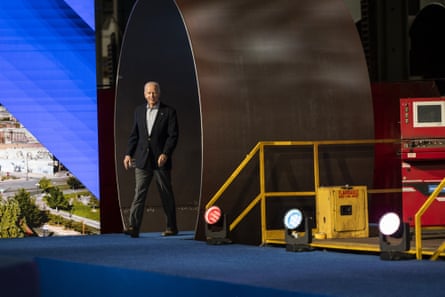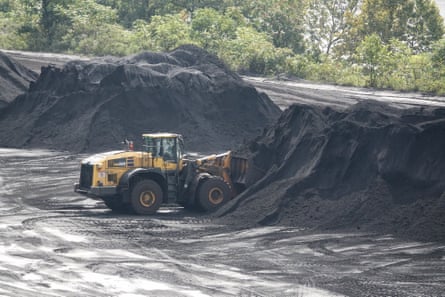Narendra Modi’s rock-star welcome to Sydney is part concert, part political rally and all about soft power
It was a rock-star welcome that would have made any of the world’s biggest stars blush.
But not Narendra Modi.
Entering a heaving Qudos Bank Arena in Sydney’s west on Tuesday night, he was greeted by a roaring crowd who cheered and clapped throughout his speech.
The Indian leader, who has been prime minister since 2014 and is vying for a third term at next year’s elections, spoke for nearly an hour, on both Australian-Indian relations as well as Indian economic and cultural successes.
“There are three Cs that defined our relationship with Australia: the commonwealth, cricket and curry. But now it is three Ds: democracy, diaspora, dosti [friendship],” he started. “Now there are also three Es that define the relationship: energy, economy and education.”
Modi went on to list popular eateries in Harris Park, a central suburb for the Indian diaspora in Sydney, much to the delight of the crowd: “I want you all to take my friend Australian PM Albanese to these places.”
He said: “Mutual trust and mutual respect have not developed only due to the diplomatic relations of India-Australia. The real reason, the real power is – all of you Indians who live in Australia.”
The arena event felt closer to a concert than a public appearance by two world leaders, as attendees held up flags and signs, and hung on Modi’s every word.
-
Sign up for Guardian Australia’s free morning and afternoonemail newsletters for your daily news roundup
Organised by the Indian Australian Diaspora Foundation, the event ran for hours before the leaders arrived and featured dances and singing by local and international groups. At one point, a countdown was featured on the massive screens above the centre stage, with every update cheered by the crowd.
“Man, this is awesome,” said Bhoomika Sampath, one of the volunteers at the event. “We are very proud of our country, we each hold on to that pride and want to be a part of it. We want to participate, and thats why we’re here.”

The event resembled a political rally, with Modi regularly inviting the audience to cheer for India and its economic or cultural achievements, such as the size of the country’s workforce, the number of smartphones, the growth of fintech startups and the uptake of Covid vaccines.
And while Modi covered a lot of ground, he did not mention the suppression of free media in India, with the Committee to Protect Journalists reporting 32 journalists and media workers killed since 2014.
Modi’s Bharatiya Janata party government is also accused of using repressive and intimidatory tactics against political opponents and civil society organisations, and of unlawfully discriminating against Muslims.
after newsletter promotion
None of these issues were addressed by the prime minister, Anthony Albanese, or the New South Wales premier, Chris Minns, who opened for Modi.
His visit comes as the diaspora is exploding, with the Australian Bureau of Statistics forecasting the community will reach 1.07 million by 2035.
Rajni Anand Luthra, from the local media platform Indian Link, said the repetition of lines about Indian success aimed to engage the local diaspora’s sense of identity and patriotism.
“Indian soft power is so strong at the moment that something like this gives the community confidence and a big sense of identity, and you can see it in the way the community is changing,” Luthra said, adding: “We will play Bollywood music from our cars and bring our food into the office – the community is not shy about itself any more. And to attend an event with Albanese instills confidence in that identity.”

Albanese, who announced the opening of the new Centre for Australia-India Relations in Parramatta, said he had never seen a reception like this.
“The last time I saw someone on this stage was Bruce Springsteen and he did not get the welcome that prime minister Modi has got,” he said. “Prime minister Modi is the boss.”
He said the centre would help foster stronger ties: “We want to see more connections, more Australian and Indian students living and studying in each other’s countries and bringing those experiences home.”
Original Source
